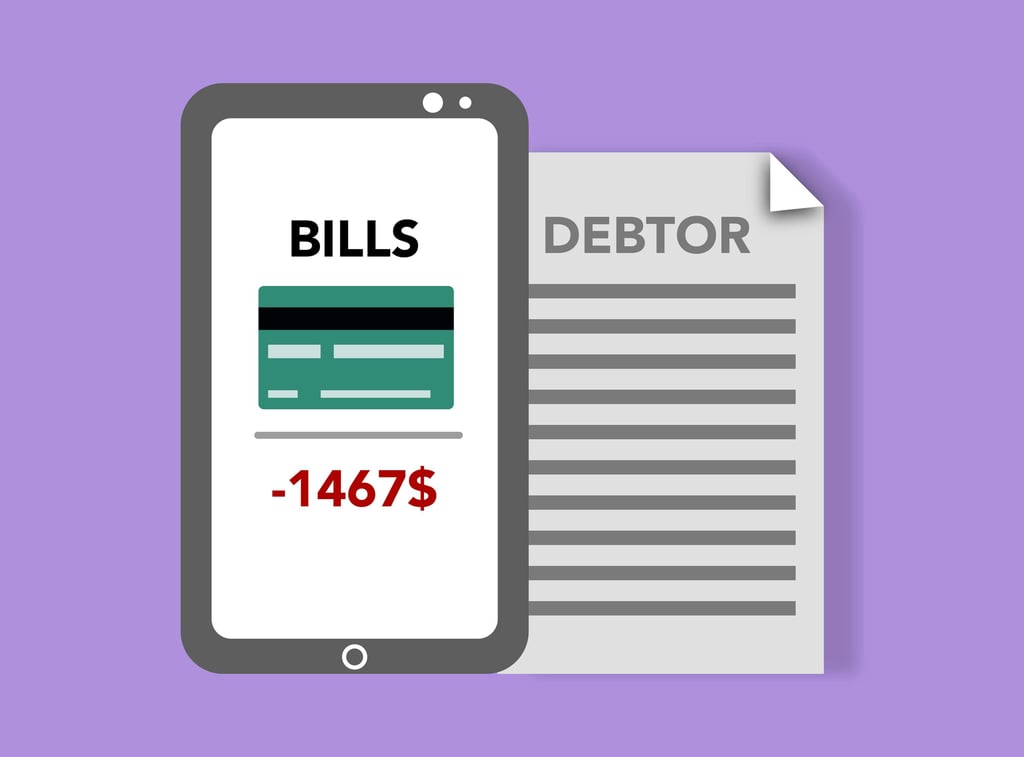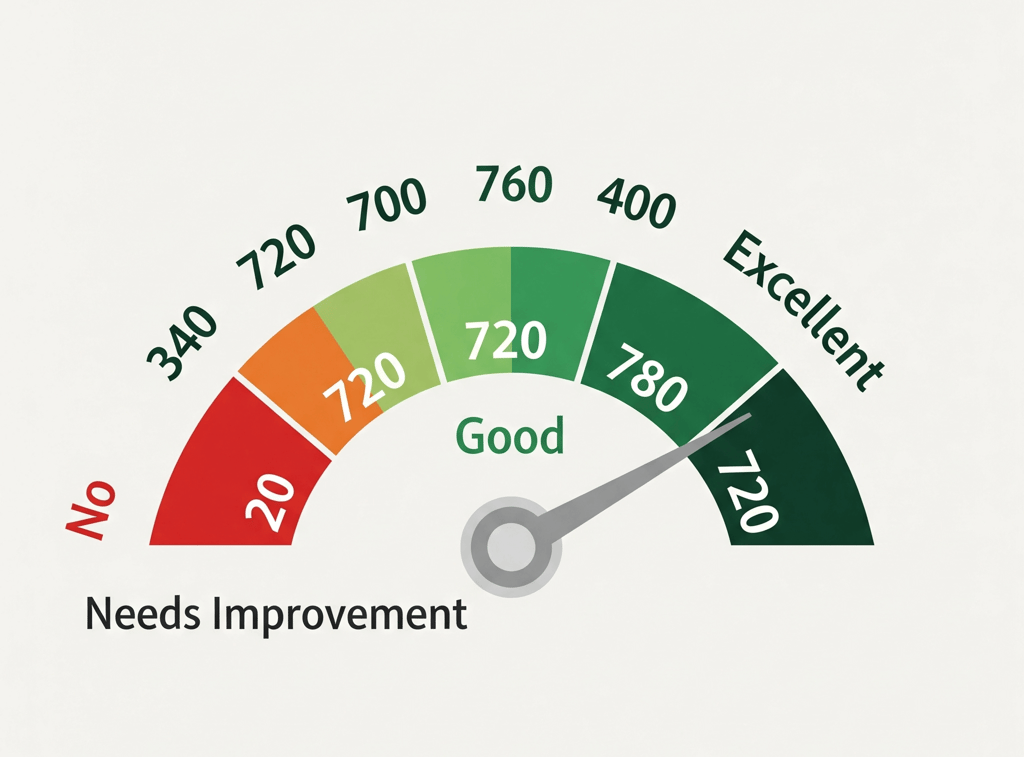How Your Credit Score Actually Affects Your Mortgage Rate in Canada (And 5 Ways to Boost It Fast)
Your credit score is one of the most important numbers in your financial life, but understanding its direct impact on your mortgage can be confusing. This definitive guide for Canadian home buyers explains what score you need to buy a house, how lenders view your credit history, and provides five actionable, easy-to-follow tips to help you boost your score quickly. Prepare your finances for success and learn how a strategic approach to your credit can save you thousands on your mortgage.
Lokesh Tuli


Of all the numbers in your financial life, your three-digit credit score is one of the most powerful and misunderstood. It’s a source of stress for many aspiring homeowners in Ontario, who often wonder: "Is my score good enough to buy a house?" and "How much is a low score really costing me?"
The truth is, your credit score is one of the most significant factors lenders use to determine not only if you get approved for a mortgage, but also the interest rate you'll pay for years to come.
As a Mortgage Planner & Strategist, my goal is to help you prepare your entire financial picture for success. This guide will demystify the connection between your credit and your mortgage, and give you 5 actionable ways to boost your score quickly.
Why Lenders are Obsessed with Your Credit Score?
Think of your credit score as your financial report card. It’s a snapshot of your history with debt, telling lenders how reliably you’ve managed your financial obligations in the past. To a lender, a higher score means you are a lower-risk borrower, which often gives you access to the best mortgage products and the lowest interest rates. A lower score signals higher risk, which can lead to higher rates or the need to work with alternative lenders.
The Credit Score Tiers: What the Numbers Mean for Your Mortgage?
While every lender has slightly different rules, your credit score generally places you into one of four tiers in Canada.
Score RangeTierWhat It Means for Your Mortgage760+ExcellentYou are considered a top-tier borrower. You will have access to the best-advertised rates and products from prime lenders (A-lenders) like major banks and credit unions.680 - 759GoodYou have a strong credit history and should have no problem qualifying for competitive rates with most prime lenders.620 - 679FairYou are on the edge of prime lending. You may still qualify with an A-lender if other aspects of your application (income, down payment) are very strong, but you may also need to consider alternative lenders (B-lenders) who are more flexible.Below 620Needs ImprovementQualifying with a prime lender will be very challenging. This is where a mortgage professional becomes essential to build a credit improvement plan and explore options with specialized private lenders.
Understanding Credit Score Tiers for Your Mortgage
Lenders in Canada generally group credit scores into four key tiers, which directly impact your mortgage options:
760+ (Excellent): You are considered a top-tier applicant. You will typically have access to the very best rates and most flexible products from prime lenders (A-lenders) like major banks and credit unions.
680 - 759 (Good): You have a strong credit history. You should have no problem qualifying for competitive rates with most prime lenders.
620 - 679 (Fair): You are on the edge of prime lending. While approval from a major bank is still possible if other parts of your application (like income and down payment) are very strong, this is the range where we often begin to explore options with more flexible alternative lenders (B-lenders).
Below 620 (Needs Improvement): Qualifying for a mortgage with a prime lender will be very challenging. In this situation, working with a mortgage professional is essential to build a strategic credit improvement plan and to explore specialized options with private lenders who are equipped to handle your file.
Frequently Asked Questions (FAQ)
1. Is it difficult to switch lenders at renewal? Not at all. When you work with a mortgage professional, the process is simple and streamlined. We handle the paperwork and communication to make the switch seamless.
2. Will shopping for a new mortgage hurt my credit score? When done correctly, no. A single credit inquiry from a mortgage professional allows us to check with multiple lenders. This is treated as a single "hard inquiry" and has a minimal, temporary impact on your score, unlike applying to multiple lenders yourself over several weeks.
3. What’s the difference between renewing and refinancing? A renewal is simply renewing your existing mortgage balance with a new term and rate (either with your current lender or a new one). A refinance involves changing the terms of your mortgage, often by borrowing more than you currently owe to access equity or consolidate debt. We can discuss which is right for you.
5 Actionable Ways to Boost Your Credit Score Fast
Your score isn’t set in stone. You have the power to improve it, and some actions have a surprisingly fast impact.
1. Pay Every Single Bill on Time Your payment history is the single most important factor (about 35%) of your score. One late payment can stay on your report for years. Set up automatic payments for all your bills—credit cards, phone bills, car loans—to ensure nothing is ever missed.
2. Lower Your Credit Utilization Ratio (The 30% Rule) This is the fastest way to see a score jump. Your utilization ratio is the amount of credit you're using compared to your total available credit. Aim to keep the balance on every credit card below 30% of its limit. If you have a card with a $10,000 limit, try to keep the balance below $3,000. Paying down high-balance cards can boost your score in as little as one month.
3. Correct Errors on Your Credit Report Mistakes happen. A payment might be reported late when it wasn't, or an old account you paid off could still be showing a balance. You are entitled to a free copy of your credit report from both Equifax and TransUnion each year. Review them carefully and dispute any errors you find.
4. Keep Old Credit Accounts Open The length of your credit history matters. A 10-year-old credit card in good standing is valuable, even if you don't use it often. Closing it can shorten your credit history and lower your average account age, which can cause your score to dip.
5. Limit New Credit Applications Every time you formally apply for new credit (a credit card, car loan, etc.), it results in a "hard inquiry" on your report, which can temporarily lower your score by a few points. Avoid applying for any new credit in the 6-12 months leading up to your mortgage application.






Have Bruised Credit? You Still Have Options.
A low credit score is not a dead end—it's just a starting point for a new strategy. As a mortgage agent who handles "tricky files," my job is to explore every possible path. This can include working with alternative lenders who are more understanding of past credit issues or creating a step-by-step plan to repair your credit so you can qualify for a prime mortgage in the near future. We can unlock mortgage options the banks don't advertise.
Your credit score is a vital piece of your homeownership puzzle. By understanding how it works and taking proactive steps to improve it, you can save thousands of dollars over the life of your mortgage.
Ready to see how your credit score positions you for a mortgage? Let's create a confidential plan to make your homeownership goals a reality.
Let's Build Your Personalized Mortgage Plan.
A confidential 15-minute call can demystify your credit situation and provide clear, actionable steps for improvement. Find a time that works for you below and let's create a plan for your success.
Book your free, confidential consultation below to get started.